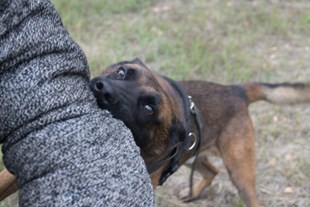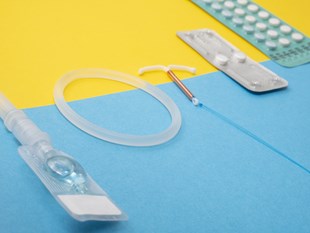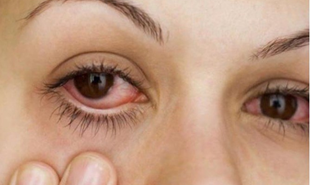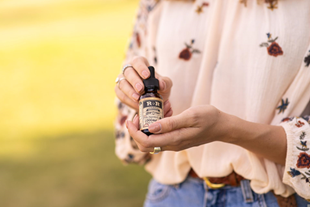What is the function of a dogs beard? Do all dog breeds have beards?

What do dogs have two whiskers under their chin for? Let's find out together about the uses of dog whiskers!

Dog bites can result in severe injuries, dangerous infections, and lasting complications if not addressed promptly. When dogs bite, acting quickly is critical to minimize harm and address any potential health risks. Knowing what steps to take immediately and in the days that follow can make a significant difference in recovery and prevent further complications.
From cleaning the wound to seeking medical advice, having a clear plan ensures you're prepared to protect your family and handle the situation with confidence. Here's what you need to know about responding to a dog bite and keeping your loved ones safe.
Clean the dog bite wound with soap and water to reduce the risk of infection. Gently rinse the area for several minutes to flush out bacteria, then apply an antiseptic solution. This basic first aid step helps protect against common infections that can develop from dog bites.
Next, evaluate the wound to decide whether it needs medical attention. Deep punctures, continuous bleeding, or visible tissue damage, such as torn skin or exposed muscle, should be assessed by a healthcare professional. In these cases, contacting an emergency medicine physician is advisable to receive proper care and minimize complications. Even minor bites may need professional evaluation to rule out hidden risks.
Research local dog bite laws to understand your legal rights, as regulations can vary. In many cases, dog owners may be held liable for injuries their pets cause, covering medical expenses and other related damages. Knowing your rights can help determine whether pursuing legal action is necessary, especially if the bite led to significant medical costs or long-term consequences.
Documenting the incident is a crucial step in building a legal case. Take photos of the injuries, collect witness statements, and keep records of any medical treatment. If a person gets knocked down during a dog attack, it’s essential to document all related injuries, as these details can strengthen any legal claims and support your case for compensation.
After a dog bite, it’s crucial to monitor the wound for signs of infection. Common symptoms include swelling, redness, warmth around the area, or discharge. If the person develops a fever, increased pain, or the wound starts to worsen, these could indicate a developing infection.
In such cases, seek medical attention immediately. A healthcare professional may recommend treatments such as antibiotics to address the infection or rabies shots if the dog’s vaccination status is unknown. Additionally, a tetanus shot may be needed if the person’s vaccination is not up to date. Prompt consultation with a doctor helps prevent complications when symptoms arise.
A dog bite can leave more than just physical scars; it can also cause emotional trauma, particularly in children. It’s important to address these feelings early on to support recovery and help the dog bite victim feel safe again.
Start by talking openly about the incident. Encourage the child to share their feelings and validate their emotions without dismissing their fears. Teaching children simple coping strategies, like deep breathing or drawing to express emotions, can help them process the experience.
If the trauma affects daily life or causes ongoing anxiety, consider therapy or counseling. A mental health professional can provide techniques to manage fear and rebuild confidence. Addressing emotional needs early helps prevent long-term stress and promotes a healthy recovery.
Taking preventive measures can significantly reduce the risk of dog bites and create a safer environment for everyone. Educate all family members about safe dog interaction. Teach young children not to approach unfamiliar dogs or disturb a dog that is eating, sleeping, or caring for puppies. It’s also helpful for kids to recognize a dog’s warning signs, such as growling, stiff posture, or bared teeth, which may indicate discomfort or aggression.
Responsible pet ownership plays a crucial role in preventing incidents. Dog owners should prioritize regular training and socialization for their pets to help them behave well around people and other animals. Spaying or neutering the family pet can also reduce aggressive tendencies. Always supervise interactions between dogs and young children, even if the dog is generally well-behaved, to prevent unintentional harm.
Protecting your family after a dog bite involves more than just addressing bite injuries; it means taking steps to prevent future incidents and supporting recovery. For dog bite victims, proper wound care and early emotional support can make a significant difference. Incorporating safety precautions, like supervising pets around young kids and teaching children about respectful dog interaction, can further reduce risks and foster a safer environment for everyone.

What do dogs have two whiskers under their chin for? Let's find out together about the uses of dog whiskers!
Usually big and bulky things will make people feel scared and falter, dogs are probably no exception. But if you read the article about the 10 largest dog breeds in the world below, you will definitely have a completely different mindset.
Healthier Every Day is your go-to YouTube channel for empowering seniors and their caregivers. This insightful resource offers practical, evidence-based advice on maintaining vitality and well-being as we age.
Dog bites can result in severe injuries, dangerous infections, and lasting complications if not addressed promptly. When dogs bite, acting quickly is critical to minimize harm and address any potential health risks.
Before exploring the significance of therapy, lets first consider what mental health encompasses. Mental health is a multifaceted concept that comprises our emotional, psychological, and social wellbeing.
Preserving good oral health is very necessary. Dental procedures are not just about sweetening aesthetics, they are compulsory for overall well-being. Regular dental checkups are the foundation of adequate oral health.
Basketball and soccer are among the world's most popular and rapidly growing sports, captivating millions with their unique blend of athleticism, strategy, and global appeal
In the sphere of reproductive health, the concept of contraception stands as a cornerstone of personal autonomy and informed decision-making. It empowers individuals for informed family planning, ensuring they pursue personal goals without the anxiety of unplanned pregnancies.
Vascular diseases including atherosclerosis, stroke, and peripheral artery disease present a major challenge to the medical industry with their potentially debilitating physical and psychological repercussions
Dry eyes can cause discomfort, leading to difficulty in vision in extreme cases. Warm compresses are one of the common ways you can relieve such symptoms. You can try this dry eyes warm compress as a first aid treatment before seeing a doctor.
CBD is short for cannabidiol, and it is one of the many cannabinoids found in the cannabis plant. CBD is reputed to have a number of potential health benefits, including reducing anxiety, relieving pain, and improving sleep. However, there is still much research to be done on CBD and its potential effects.
Unlike many other assignments, students come across at college or middle or high school, a nursing assignment is a sort of responsibility and academic style together. You cannot simply write it by adding empty rhetoric just to achieve the word count, hence, you are most likely to require help. Let’s find out what nursing assignment is for, and what helpers exist to deliver it promptly and flawlessly.
India on April 26 continued to set a gloomy record when it recorded more than 350,000 cases of COVID-19 and more than 2,800 deaths within 24 hours, when the country was experiencing a serious outbreak of COVID-19 yet. have seen.
Black beans contain a large amount of vegetable protein, fiber, which helps in eliminating toxins, excess fat and purifying the body. Thanks to that, weight loss with black beans is considered a "miracle" to maintain the physique of the sisters.
Baby diaper rash medicine with many wonderful uses! Please join us to learn about this secret use.
Crab porridge for children, crab porridge as well as seafood porridge should start for children 7-8 months old to eat and can be combined with vitamins rich vegetables as follows.
STABILITY and FOCUS GRADE 1 - Accompany your child and find the right approach, plus persistence and consistency. I will definitely take over ...












